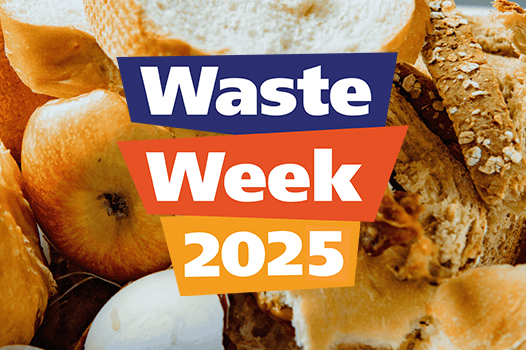Waste Week 2025: Celebrating Our Collective Effort to Tackle Food Waste!
Hello, Wastebusters!
Waste Week 2025 has been a fantastic success, and we want to thank all the schools, pupils, teachers, and families who took part from 3rd to 9th March. This year, our focus was on reducing food waste, and thanks to your creativity and enthusiasm, we’ve made a real impact!
The Power of Small Changes: Why Tackling Food Waste Matters
Throughout Waste Week, we highlighted that over 10 million tonnes of edible food are wasted from UK homes each year. By making small changes—reusing leftovers, planning meals, and sharing surplus food—we can collectively reduce waste and help protect the planet.
A Taste of Success: The “Wastebusters Love Food Love Your Planet Cookbook”
One of the most exciting parts of Waste Week 2025 has been the incredible response to our call for inventive leftover food recipes. Pupils, teachers, and families have already shared creative and delicious dishes that transform potential waste into tasty meals—and there’s still time to get involved!
The Wastebusters Love Food Love Your Planet Cookbook competition is still open, meaning your school can continue submitting recipes for a chance to be featured. If you haven’t entered yet, now is the perfect time to get your pupils thinking about ways to reduce food waste through clever cooking.
To take part:
🍽 Create – Encourage pupils to come up with tasty recipes using common leftovers.
📸 Capture – Take photos and write a short story about the inspiration behind each dish.
📩 Submit – Share your creations with us for a chance to be included in the cookbook!
This is a fantastic opportunity to showcase your school’s creativity, inspire others, and be part of a movement turning food waste into delicious meals.
💡 The competition is still open—find out how to enter here: https://jointhepod.org/legal#WW25
Preparing for the New Recycling Regulations
As Waste Week wrapped up, we also turned our attention to the upcoming changes in school recycling requirements. From 31st March 2025, all schools in England will need to have comprehensive recycling measures in place, including separate collections for:
✔ Food waste
✔ Glass (bottles, jars)
✔ Metal (tins, cans, foil)
✔ Plastic (bottles, tubs, trays)
✔ Paper and Cardboard (envelopes, magazines, boxes)
Many schools have already taken great steps toward compliance by setting up clearly labelled bins, running recycling education sessions, and working with licensed waste carriers. If your school is still working on its plan, now is the perfect time to take action.
Practical Support: Best Practice Guide for School Food Waste Management
To support schools in managing food waste effectively, we are excited to share the Best Practice Guide for School Food Waste Management. This resource provides practical strategies to help schools reduce, redistribute, and recycle food waste, ensuring compliance with upcoming regulations while fostering sustainability.
Key highlights from the guide include:
📌 Food Waste in Schools – Understand where food waste comes from and how to track it.
📌 Legal Requirements – Get ready for the new recycling regulations starting 31st March 2025.
📌 Reducing Waste – Tips on portion control, food waste audits, and student engagement.
📌 Redistributing Food – How to set up Community Fridges and Store Cupboards to share surplus food.
📌 Composting Solutions – Step-by-step guides for HOTBIN composting and traditional composting.
📌 Success Stories – See how other schools have cut food waste and improved sustainability.
By using this guide, schools can take meaningful steps toward reducing food waste, ensuring compliance with regulations, and embedding sustainable practices into daily operations.
📥 Download the full guide here: Best Practice Guide for School Food Waste Management
Looking Ahead: Keeping the Momentum Going
Waste Week 2025 may have come to an end, but the journey towards reducing food waste continues. Let’s build on the enthusiasm and ideas shared during the week by embedding these habits into everyday school life.
A huge thank you to everyone who took part—whether by sharing a recipe, starting a recycling initiative, or raising awareness. Together, we are creating a more sustainable future, one small action at a time.
Stay engaged, keep the conversation going, and let's continue to make a difference!
